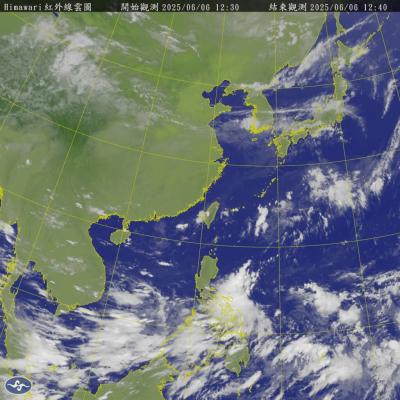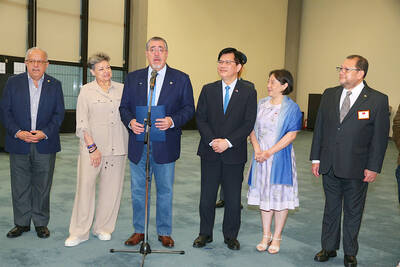Richard Halloran, a US journalist covering national defense and security issues, yesterday urged the government and the military to improve communication with the public to encourage support for the proposed US arms acquisition budget and build consensus on defense against China.
"Unlike autocracies, democracies go into and win a war only when the public supports it. For example, the US failed in the Vietnam War because many US people were against it," Halloran said at a media seminar in Taipei to discuss the relationship between the military and the public in democracies.
"In democracies, the government and the army should offer the public more information about what their countries are doing, and gain the public's support on defense policies," Halloran said.
"Simply put, the more communication, the better," he said.
When asked to comment on concern about what would happen if China uses military action to threaten or attack Taiwan, and the possibility of taking over Taiwan using psychological warfare tactics, Halloran said "the Taiwan government should generate some political strategy to make people support the country and its defense policies, and this would break the illusion of China taking over Taiwan easily."
He said that he is under the impression that the US government and Congress are impatient about the delays in concluding the proposed arms purchase from the US.
Saying that many Americans now think that the US has been spending too much money on national security and the war on terror since the Sept. 11, 2001 attacks, Halloran said that many of his countrymen are now also asking, "Why should we pay for Taiwan's security? If you Taiwanese do not care, why should we be worried about that?"
Halloran said that, for the sake of its security, Taiwan should do more to defend itself and maintain the support of the US.
Halloran is currently a columnist writing articles mostly on Asian-US relations for publications including the Taipei Times, Hong Kong's South China Morning Post, Japan's Sankei Shimbun, Singapore's Straits Times and The Washington Times.
He is a former defense and military correspondent for The New York Times, for whom he covered the Pentagon, US Congress, defense studies and US forces in the field.

Greenpeace yesterday said that it is to appeal a decision last month by the Taipei High Administrative Court to dismiss its 2021 lawsuit against the Ministry of Economic Affairs over “loose” regulations governing major corporate electricity consumers. The climate-related lawsuit — the first of its kind in Taiwan — sought to require the government to enforce higher green energy thresholds on major corporations to reduce emissions in light of climate change and an uptick in extreme weather. The suit, filed by Greenpeace East Asia, the Environmental Jurists Association and four individual plaintiffs, was dismissed on May 8 following four years of litigation. The

STAY AWAY: An official said people should avoid disturbing snakes, as most do not actively attack humans, but would react defensively if threatened Taitung County authorities yesterday urged the public to stay vigilant and avoid disturbing snakes in the wild, following five reported snakebite cases in the county so far this year. Taitung County Fire Department secretary Lin Chien-cheng (林建誠) said two of the cases were in Donghe Township (東河) and involved the Taiwan habus, one person was bit by a Chinese pit viper near the South Link Railway and the remaining two were caused by unidentified snakes. He advised residents near fields to be cautious of snakes hiding in shady indoor areas, especially when entering or leaving their homes at night. In case of a

A tropical disturbance off the southeastern coast of the Philippines might become the first typhoon of the western Pacific typhoon season, the Central Weather Administration (CWA) said. The system lacks a visible center and how it would develop is only likely to become clear on Sunday or Monday, the CWA said, adding that it was not yet possible to forecast the potential typhoon's effect on Taiwan. The American Meteorological Society defines a tropical disturbance as a system made up of showers and thunderstorms that lasts for at least 24 hours and does not have closed wind circulation.

DIPLOMACY: It is Guatemalan President Bernardo Arevalo’s first visit to Taiwan since he took office last year, while Eswatini’s foreign minister is also paying a visit A delegation led by Guatemalan President Bernardo Arevalo arrived in Taiwan yesterday afternoon and is to visit President William Lai (賴清德) today. The delegation arrived at Taiwan Taoyuan International Airport at 4:55pm, and was greeted by Minister of Foreign Affairs Lin Chia-lung (林佳龍). It is Arevalo’s first trip to Taiwan since he took office last year, and following the visit, he is to travel to Japan to celebrate the 90th anniversary of diplomatic relations between the two countries. Arevalo said at the airport that he is very glad to make the visit to Taiwan, adding that he brings an important message of responsibility